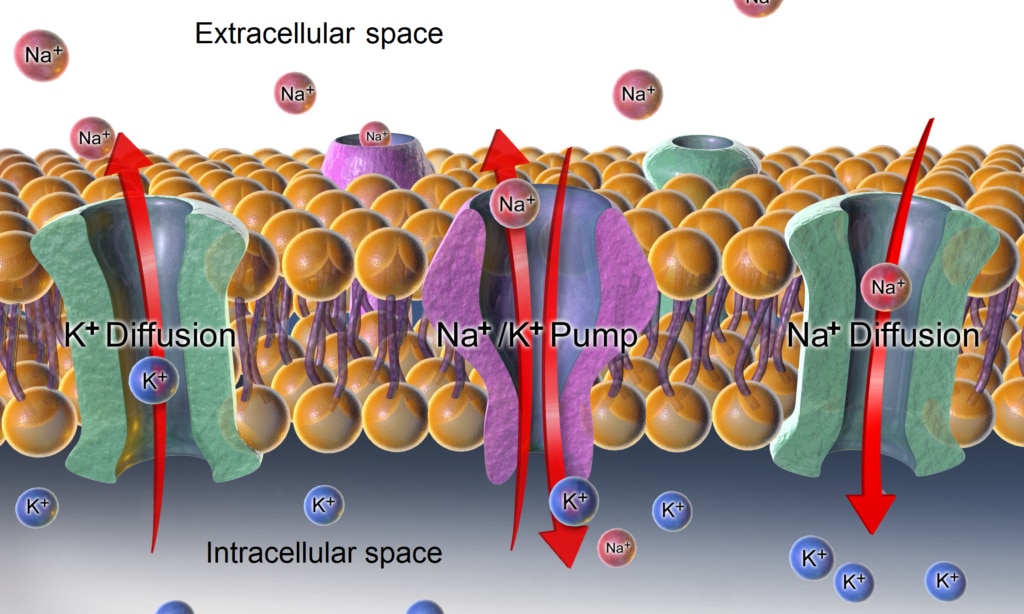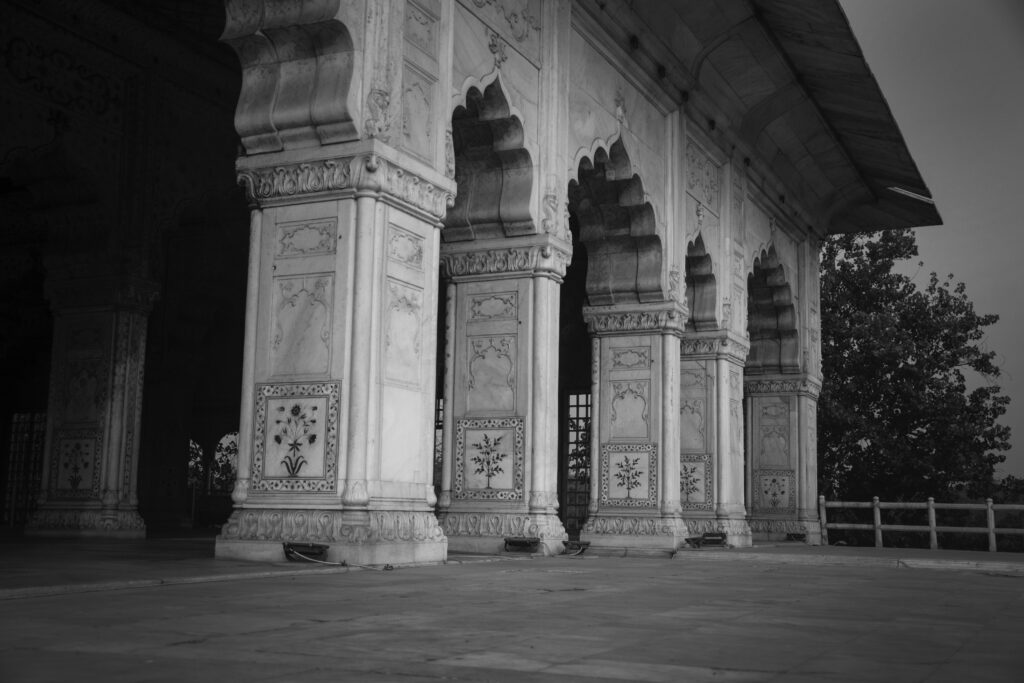Guidance regarding basic Islamic issues – which Hazrat Amirul Momineen, Khalifatul Masih Vaa has given on various occasions in his written correspondence and during MTA programmes – is being officially published below for everyone’s benefit.
Jinn

Someone from Jordan asked Hazrat Amirul Momineen, Khalifatul Masih Vaa, a question about the following verse of Surah ar-Rahman:
لَمۡ يَطۡمِثۡھُنَّ اِنۡسٌ قَبۡلَھُمۡ وَلَا جَآنٌّ
[“… whom neither man nor Jinn will have touched before them…” (Surah ar-Rahman, Ch.55: V.57]
He asked what the term “jinn”, mentioned in this verse, meant. Huzoor-e-Anwaraa, in his letter dated 18 October 2021, provided the following answer to this question:
“The word jinn is frequently used in the Holy Quran and the ahadith of the Holy Prophetsa with various connotations. The precise meaning of the word is determined by its context. Generally, the word jinn means something that is hidden, whether it is hidden owing to its form or its behaviour. The word takes on numerous connotations as it changes cases or is inflected in other ways. Nevertheless, the concept of being hidden or obscure is common across all of these connotations.
“The following words, for example, that are derived from the root j-n-n, carry the above-mentioned connotation:
janna [جَنَّ], for example, means ‘to cast a shadow’ or ‘to cast a mantle of darkness’.
janin [جَنِين] is the foetus hidden in the mother’s womb.
junun [جُنُون] refers to the illness which covers the intellect.
jinan [جِنَان] denotes the heart, hidden in one’s chest.
jannah [جَنَّة] is the garden, whose thick shade from the trees covers the soil.
majannah [مَجَنَّة] refers to the shield behind which the warrior hides.
jaann [جَانّ] is applied to the snakes that live in hiding in the ground.
janan [جَنَن] refers to the tomb that hides the dead in itself.
junnah [جُنَّة] applies to the veil that covers the head and the body.
“Moreover, the word jinn is also used for veiled women. It is also used for such chieftains and the elite who do not mix with the public. It is also used for people of nations that live in geographically remote areas and are cut off from the rest of the world.
“Similarly, the word [jinn] is also used for nocturnal animals that stay in the dark and for very small insects or microorganisms such as germs etc. That is why the Holy Prophetsa instructed that eating utensils be kept covered at night. (Sahih Muslim, Kitab al-ashribah, Bab al-’amri bi taghtiyati l-ina’i wa ika’i s-siqa’i wa ighlaqi l-abwab) He also forbade the usage of bones for cleaning after attending to the call of nature and said that they were the food of the jinn, i.e., ants, termites and other bacteria. (Sahih al-Bukhari, Kitab al-manaqib, Bab dhikri l-jinn)
“Furthermore, the word jinn is also used for hidden evil spirits, i.e., Satan and for the hidden good spirits, i.e., angels as has been stated that:
مِنَّا الصَّالِحُونَ وَمِنَّا دُونَ ذَلِكَ
“[‘Some of us are righteous and some of us are otherwise.’] (Surah al-Jinn, Ch. 72: V. 12)
“Thus, as mentioned above, the word will have different meanings depending on the context. In your question, you have quoted the following verse of Surah ar-Rahman:
لمْ يَطْمِثْهُنَّ إنْسٌ قْبلَهُمْ وَلَا جَانٌّ
“[‘… whom neither man nor Jinn will have touched before them…’ (Surah ar-Rahman, Ch.55: V.57]
“The word ‘jinn’, which has been used in this verse in contrast to ‘ins’, denotes the elite, those of great rank and position, the rich, chieftains and leaders. And the meaning of the verse is that Allah the Exalted has prepared such heavenly gardens for His righteous servants in which there will be such unique blessings that will be exclusively for those dwellers of Paradise and before them, these blessings would have been beyond the reach of the ordinary as well as the elite.”
Souls of animals

Someone from Canada sent a saying of the Promised Messiahas regarding the survival of animals’ souls after their death to Hazrat Amirul Momineen, Khalifatul Masih Vaa. The person also wrote that Huzooraa had said during a Waqf-e-Nau class that animals’ souls did not live on after their deaths, rather they also died in this world. He asked how one could reconcile both of these statements. Huzoor-e-Anwaraa, in his letter dated 19 October 2021, gave the following reply to this question:
“The dialogue you have referred to in your letter took place in Lahore in 1908 in the form of two question-and-answer sessions between the Promised Messiahas and Prof Clement Wragge of England. In that dialogue, the esteemed professor posed a series of questions to Huzooras about a wide range of topics, including the nature of God, the advent of prophets, the universe, the motivators of good and evil, Satan, the lives of this world and of the hereafter, the relationship of humans with their souls, the sacrifice of the lower for the higher, animals and their souls and the issue of evolution, etc. Huzooras gave very insightful answers to those questions. In addition to shedding light on the various aspects of these topics, he also clarified the difference between humans and animals with regard to intellect, various kinds of suffering, feelings and their actions in this world, as well as the recompense they will receive in the afterlife. Thus, in response to one of the questions, Huzooras said:
“‘This world is a limited world. God has set up a vast realm to follow this one, wherein He has desired and promised that true and everlasting prosperity will be awarded. Every suffering that exists in this world will be redressed and compensated in the other realm. Any shortcoming that is found in this world will be made whole in the next world.
“‘As for the sorrow, hardship, grief, and anguish, they have to be experienced by the ordinary and the elite alike. These were essential and necessary for the functioning of the system of this world. If one takes a broad look, it becomes obvious that no one is free from suffering. Every creation has to partake a share thereof according to its status, in one way or another. […]
“‘The second point that is worthy of attention is that since human sufferings are greater than the suffering of animals, human reward will also be greater than that of animals. Human suffering is of two kinds. One is the suffering due to the sharia [religious law] and the other is the suffering due to fate and destiny. In suffering due to fate and destiny, man and animal are co-sharers and almost comparable. […]
“‘However, in the hardships of sharia, there is nothing common between animals and humans. The dictates of the sharia are like a knife that slides over the throat of man, but animals are not held accountable for them. The constraints of the sharia are like a death that man has to bring upon himself. By considering all these matters together, it would be clear that human sufferings are far greater than the sufferings of animals.
“‘The third thing worth remembering is that human senses are very sharp. Man has a much greater ability to feel. Animals or plants, on the other hand, have much fewer feelings. […] Therefore, animals have far less sense or feeling of these sufferings and it is possible that on some occasions they do not even feel them at all.
“‘Now, one should ponder as to who has the greater burden of these sufferings in the world? Is it humans or animals? It is obvious that humans get a much bigger share of these hardships of the world as compared to animals.’” (Malfuzat, Vol. 10, 1984, pp. 429-432)
“Moving forward, the Promised Messiahas said the following to the subsequent question by the esteemed professor about whether animals would also have some reward in the next world:
“‘Yes, I do believe that all will be compensated for their worldly hardships, and reparation will be made for their suffering and hardships.’ (Ibid.)
“Moreover, Huzooras replied as follows to the remark by the esteemed professor that the necessary implication of this was that we should believe that the animals we killed were alive and not dead:
“‘Of course. It is essential to note that they have not been annihilated. Their soul remains. They are not really dead. Rather, they, too, are alive.’ (Ibid.)
“In this dialogue, Huzooras has illustrated the distinction between the obligations of humans and animals with regard to the commandments of the sharia and Allah’s distinct treatment of them. During the Waqf-e-Nau class, I described and elaborated on this subject in the same vein but with slightly different wording and said that the lives of animals ended in this world. What I meant by this was that since animals were not bound by the dictates of sharia, in the next world they would not be subject to the same reward and punishment as humans. However, only their mutual dealings among themselves will be redressed on the Day of Judgment as has been mentioned in the ahadith that even the wrong done to a hornless goat by a horned goat will be redressed. (Sahih Muslim, Kitab al-birri wa s-silati wa l-adab) It is this kind of survival of the animals’ souls that is described in the last words of the above-mentioned statement of the Promised Messiahas.
“On the other hand, since humans are the best of creation and have been obligated to obey the commands of sharia, they will be judged according to those commands and will be admitted to either hell or heaven according to their deeds.
“In addition to his above-mentioned saying, quoted from Malfuzat, the Promised Messiahas has also elaborated in his writings on the distinction that exists between the souls of humans and animals in terms of their being obligated by sharia and receiving reward or punishment. Hence, while elucidating the metaphors mentioned in the Divine discourse, such as ‘We caused such and such a nation to die and then resurrected it’, ‘We caused a prophet to die for a hundred years and then resurrected him’. ‘We brought animals back to life through Hazrat Ibrahimas’ etc., Huzooras writes:
“‘It is by no means true that in all the places where the resurrection of the ‘dead’ is written, death has been mentioned in its literal or true sense; rather, according to the lexicon, the meaning of death is also sleep as well as all kinds of unconsciousness. So, why should we intentionally create any contradiction among the Quranic verses? In hypothetical terms, even if the four animals came back to life after death [see Holy Quran, Ch.2:V.161], this resurrection would not have any bearing on their souls, because the souls of animals or insects cannot survive, only those of humans can. If they were to resurrect, they would be new creatures. Hence, it is written in some occultist magazines that if many scorpions were ground and kept sealed in a vessel with a special method or composition, all the organisms that would be born from this composition, would also be scorpions. So now, can any wise person think that the same scorpions that had died, came back to life? Rather, the true viewpoint, which is proven by the Holy Quran, is that none of the earthly creatures except the jinn and the ins have been given eternal souls.’ (Izalah-e-Awham, Ruhani Khazain, Vol. 3, pp. 620-621)
“While explaining the reality of the survival of the human soul in terms of Islamic teachings as opposed to the beliefs of the Arya religion, Huzooras wrote:
“‘One cannot raise the allegation that Muslims also declared human souls to be eternal, because the Holy Quran does not teach that human souls are innately eternal, it rather teaches that this eternity is only a Divine gift for the human soul, otherwise, the human soul is also perishable like the souls of animals.’” (Naseem-e-Da‘wat, Ruhani Khazain, Vol. 19, p. 382, footnote)
“Thus, in my view, there is no contradiction between the sayings of the Promised Messiahas and what I said during the Waqf-e-Nau class. If it was not clear before, it should be clear now that the matter of animals is limited only to their mutual dealings being redressed. The commandments of the sharia will not be applied to them, nor will they have anything to do with that Judgement. On the other hand, humans will be dealt with in view of the commands of sharia and their reward will be decided according to their actions and the extent to which they followed the dictates of sharia.”
‘Al-Bahrayn’ as extracellular and intracellular fluids

Someone from Germany sent his interpretation of the following verses of the Holy Quran to Hazrat Amirul Momineen, Khalifatul Masih Vaa:
وَ ھُوَ الَّذِيۡ مَرَجَ الۡبَحۡرَيۡنِ ھٰذَا عَذۡبٌ فُرَاتٌ وَّ ھٰذَا مِلۡحٌ اُجَاجٌ وَ جَعَلَ بَيۡنَھُمَا بَرۡزَخًا وَّ حِجۡرًا مَّحۡجُوۡرًا وَ ھُوَ الَّذِيۡ خَلَقَ مِنَ الۡمَآءِ بَشَرًا فَجَعَلَہٗ نَسَبًا وَّ صِھْرًا ؕ وَ کَانَ رَبُّکَ قَدِيۡرًا
[And He it is Who has caused the two seas to flow, this palatable (and) sweet, and that saltish (and) bitter; and between them He has placed a palatable and a great partition. And He it is Who has created man from water, and has made for him kindred by descent and kindred by marriage; and thy Lord is All-Powerful. (Surah al-Furqan, Ch. 25: V.54-55)]
The person interpreted the “sweet” and “saltish” waters mentioned in the verses to mean intracellular and extracellular fluids and said that the “creation of man from water,” mentioned in the second verse, could be a reference, that every human consists of cells with extracellular “salty” water and intracellular “sweet” water. Moreover, he wrote that cells consisted of “sweet” and “saltish” fluids too and that there was also a “barrier” between them.
The person requested Huzoor’saa guidance in this regard. Huzoor-e-Anwaraa, in his letter dated 19 October 2021, provided the following guidance to him:
“That is fine as your personal interpretation and one aspect of these verses may well be what you have described. However, to confine the interpretation of these verses to only this aspect would be tantamount to limiting the broad scope of the Holy Quran’s message. This is because there are many other aspects of these Quranic verses that have been explained by the classical commentators in their respective times. Moreover, the Promised Messiahas and his successors have also explained many new aspects of these verses, which can be read in their tafasir and other writings.
“For example, seawater is very salty, but when that water condenses into clouds and falls back to the ground as precipitation, it is very sweet. And there is a ‘barrier’ between these two types of water that never allows [the seawater] to remain the same.
“Likewise, it can seemingly also be interpreted as the waters of seas and rivers. Seawater is salty, while water from rivers is usually sweet.
“Then, it can also refer to the spiritual teaching, which is like sweet water and the teaching of disbelief, which is like salty water, i.e., the teachings that come directly from God are sweet and the teachings that, although they have existed in the world for a long time, are not based on direct revelation, are bitter.
“Similarly, many interpretations of ‘the creation of man and every living thing from water’ have been given by the Promised Messiahas and his Khulafa. Among them is that every living thing is sustained by water. Hence, when rain falls from the sky, crops grow on the earth, which sustains life. In the same way, it is necessary for spiritual life that spiritual water keeps descending from the heavens. Likewise, in the reservoirs of fresh and saltwater, i.e. the seas and rivers, Allah the Exalted has created food for humans and other animals in the form of different types of fish and aquatic creatures.
“Therefore, it is not correct to limit the wide scope of themes described in these Quranic verses to only one aspect. Yes, it is permissible to derive different meanings from them that are in accordance with the Holy Quran and the teachings of the Holy Prophetsa, as well as the interpretations of his ardent devotee, the Promised Messiahas, the Hakam and ‘Adl of the age.”
Conjugal relationship during the ‘iddah period

Someone from Germany sent a copy of the letter he had written to Nazim Dar-ul-Qaza Germany, to Hazrat Amirul Momineen, Khalifatul Masih Vaa. In that letter, he requested guidance regarding the validity of the divorce [talaq] he had issued but had a sexual intercourse with his wife during the ‘iddah period and had then lied to Dar-ul-Qaza about it. He asked whether, in view of these circumstances, the confirmation letter from Dar-ul-Qaza regarding his talaq was valid, or whether he had to repeat the entire process [if he still wanted a divorce].
Huzoor-e-Anwaraa, in his letter dated 29 October 2021, gave the following reply to this question:
“Based on the circumstances you have described, your talaq, during the ‘iddah period of which a conjugal relationship was established between you and your wife, was not effective. Thus, the verdict of talaq that has been passed by Dar-ul-Qaza with regard to you and your wife is not valid. This is so because you misrepresented the truth before Dar-ul-Qaza.
“Nevertheless, you have used one out of the three opportunities for talaq given to the husband by Islam. Moreover, since a conjugal relationship was established between you and your wife during the ‘iddah period after that talaq, this act would be considered your ruju‘ from talaq i.e. reconciliation.
“Now, if you wish to divorce your wife again, it would be considered the second pronouncement of talaq on your part. The ‘iddah period after it will be three menstrual cycles, or if she does not menstruate, then it will be a period of three months. Moreover, if your wife is pregnant, the ‘iddah period will last until the delivery.
“After this period of ‘iddah, provided that you do not reconcile [ruju‘] with your wife, the divorce between you and your wife will become effective.
“May Allah the Exalted have mercy on you and grant you both, husband and wife, the ability to follow all the commandments of Islam, while keeping in mind truthfulness and the fear of God. Amin.”
(Compiled by Zaheer Ahmad Khan, Head of Records Department, Private Secretariat, London. Translated by Al Hakam.)

